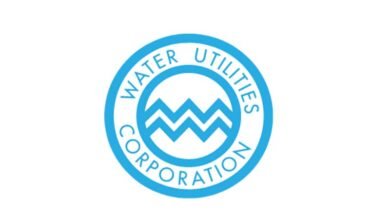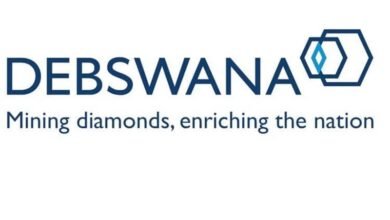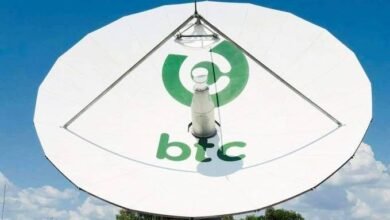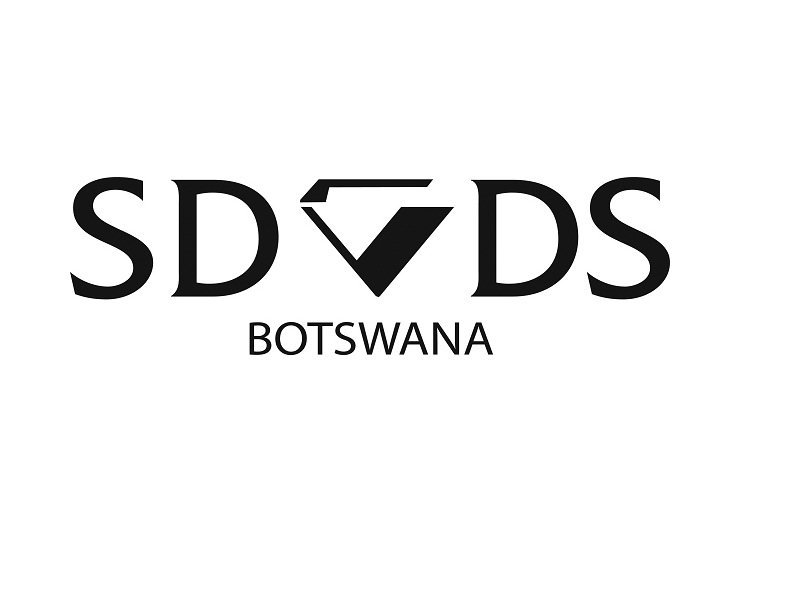Nursing Learnerships 2025 – Where to Apply: Your Complete Guide to Healthcare Career Success
The healthcare sector in South Africa continues to experience unprecedented growth, creating numerous opportunities for aspiring nurses. With the country facing a significant shortage of qualified healthcare professionals, nursing learnerships have become a vital pathway for individuals seeking meaningful careers in healthcare. This comprehensive guide explores everything you need to know about nursing learnerships 2025, including where to apply, requirements, and how to secure your spot in these competitive programmes.
What Are Nursing Learnerships and Why They Matter in 2025
Nursing learnerships represent a unique educational model that combines theoretical knowledge with practical work experience. Unlike traditional academic programmes, these structured training opportunities allow you to earn while you learn, making healthcare education accessible to individuals from diverse socioeconomic backgrounds.
The South African healthcare system faces a critical shortage of qualified nurses, with rural areas particularly affected. According to recent industry reports, the country needs approximately 50,000 additional nurses to meet current healthcare demands. This shortage has created unprecedented opportunities for individuals seeking stable, rewarding careers in healthcare.
Nursing learnerships typically last between 18 to 36 months, depending on the specific programme and qualification level. Participants receive comprehensive training covering essential nursing skills, patient care, medical procedures, and healthcare administration. Upon successful completion, graduates are equipped with nationally recognized qualifications that open doors to various healthcare career paths.
Top Institutions Offering Nursing Learnerships in 2025
1. Netcare Faculty of Nursing and Ancillary Healthcare (FNAH)
Netcare stands as one of South Africa’s premier private healthcare providers, offering comprehensive nursing education through their Faculty of Nursing and Ancillary Healthcare. Their nursing learnership programmes are designed to develop clinical knowledge and practical skills essential for modern healthcare delivery.
Programme Highlights:
- Internationally recognized qualifications
- State-of-the-art training facilities
- Experienced clinical instructors
- Guaranteed placement opportunities within Netcare facilities
Application Process: Applications typically open between March and June annually. Prospective students must submit completed application forms along with certified academic transcripts and identity documents.
2. Mediclinic Learning Centres
Mediclinic operates multiple learning centres across South Africa, offering diploma-level nursing programmes that combine academic excellence with practical experience. Their nursing learnerships are particularly popular among students seeking comprehensive healthcare education.
Key Features:
- Multiple campus locations including Johannesburg, Cape Town, and Durban
- Modern simulation laboratories
- Clinical rotations in prestigious Mediclinic hospitals
- Mentorship programmes with experienced nurses
Eligibility Requirements:
- Grade 12 certificate with minimum APS score of 20
- Life Sciences or Physical Science at Grade 12 level
- South African citizenship or permanent residency
- Clean criminal record
3. Life Healthcare Education and Training
Life Healthcare’s nursing learnership programmes focus on developing compassionate, skilled healthcare professionals. Their training approach emphasizes both technical competency and patient-centered care, preparing graduates for successful nursing careers.
Programme Benefits:
- Comprehensive theoretical and clinical training
- Exposure to various medical specialties
- Career advancement opportunities within Life Healthcare
- Ongoing professional development support
Application Timeline: Applications are typically accepted between June and August annually, with programme commencement in January the following year.
4. Provincial Department of Health Programmes
Several provincial health departments offer nursing learnerships, providing opportunities for students to train within public healthcare facilities. These programmes are particularly valuable for individuals interested in community health and public service.
Notable Programmes:
- Gauteng College of Nursing
- Free State School of Nursing
- North West Province Student Nurse Training Programme
- KwaZulu-Natal Department of Health initiatives
5. Community Health Centres and District Hospitals
Many community health centres and district hospitals partner with educational institutions to offer nursing learnerships. These programmes provide excellent exposure to primary healthcare and community nursing practices.
Essential Requirements for Nursing Learnership Applications
Academic Prerequisites
Most nursing learnership programmes require specific academic qualifications:
Minimum Requirements:
- Grade 12 certificate (NSC) with bachelor’s degree exemption
- Minimum APS score of 20-25 points
- English First or Second Language (Level 4 minimum)
- Life Sciences (Biology) or Physical Science (Level 4 minimum)
- Mathematics or Mathematical Literacy (Level 4 minimum)
Additional Considerations: Some institutions may consider Recognition of Prior Learning (RPL) for mature applicants who lack formal Grade 12 qualifications but possess relevant work experience.
Personal Requirements
Beyond academic qualifications, successful applicants typically demonstrate:
Essential Qualities:
- Strong communication skills
- Empathy and compassion
- Physical and emotional resilience
- Commitment to healthcare service
- Ability to work under pressure
Legal Requirements:
- South African citizenship or permanent residency
- Clean criminal record
- Medical fitness certificate
- Psychological evaluation (some programmes)
Documentation Checklist
Prepare the following documents for your application:
Required Documents:
- Certified copy of Grade 12 certificate
- Certified copy of identity document
- Academic transcripts
- Curriculum vitae
- Motivational letter
- Two character references
- Medical certificate of fitness
- Proof of residence
Step-by-Step Application Process for 2025
Phase 1: Research and Preparation (January – March)
Begin your nursing career journey by thoroughly researching available programmes. Consider factors such as location, programme duration, qualification level, and career prospects. Create a comprehensive list of institutions that align with your career goals and circumstances.
Action Items:
- Identify preferred nursing specializations
- Research institution reputations and success rates
- Calculate total programme costs and available funding
- Prepare necessary documentation
- Improve academic qualifications if needed
Phase 2: Application Submission (April – August)
Most nursing learnership applications open between April and August, with specific dates varying by institution. Early application submission is crucial due to high competition for limited positions.
Application Strategy:
- Submit applications to multiple institutions
- Ensure all documentation is complete and certified
- Write compelling motivational letters
- Follow specific application instructions carefully
- Keep copies of all submitted documents
Phase 3: Assessment and Selection (September – November)
The selection process typically involves multiple assessment stages designed to evaluate academic potential, personal suitability, and commitment to nursing careers.
Common Assessment Methods:
- Written aptitude tests
- Personal interviews
- Group discussions
- Practical skills assessments
- Medical examinations
Phase 4: Confirmation and Enrollment (December – January)
Successful candidates receive formal offers during this period. Prompt response to offers is essential, as institutions often have waiting lists of qualified applicants.
Final Steps:
- Accept offers within specified timeframes
- Complete enrollment procedures
- Arrange accommodation if necessary
- Prepare for programme commencement
Financial Considerations and Funding Options
Programme Costs
Nursing learnership costs vary significantly depending on the institution and programme type:
Public Institutions:
- Registration fees: R500 – R2,000
- Annual tuition: R5,000 – R15,000
- Additional costs: R3,000 – R8,000
Private Institutions:
- Registration fees: R1,000 – R5,000
- Annual tuition: R20,000 – R60,000
- Additional costs: R5,000 – R15,000
Available Funding Sources
Government Funding:
- National Student Financial Aid Scheme (NSFAS)
- Provincial health department bursaries
- Skills Development Levy funding
- Municipal bursary programmes
Private Funding:
- Employer-sponsored training
- Healthcare institution bursaries
- Private foundation grants
- Bank education loans
Self-Funding Strategies:
- Part-time employment during studies
- Family financial support
- Community fundraising initiatives
- Savings and investment liquidation
Career Prospects and Advancement Opportunities
Entry-Level Positions
Nursing learnership graduates can pursue various entry-level healthcare positions:
Primary Healthcare:
- Community health centres
- Clinics and day hospitals
- Occupational health services
- Home healthcare services
Hospital Settings:
- General medical wards
- Surgical units
- Emergency departments
- Specialized care units
Career Advancement Pathways
The nursing profession offers numerous advancement opportunities:
Clinical Specialization:
- Intensive care nursing
- Theatre nursing
- Pediatric nursing
- Mental health nursing
Leadership Roles:
- Unit managers
- Nursing supervisors
- Clinical coordinators
- Department heads
Education and Research:
- Nurse educators
- Clinical researchers
- Programme coordinators
- Academic positions
Salary Expectations
Nursing salaries in South Africa vary based on experience, qualifications, and work setting:
Entry-Level (0-2 years):
- Public sector: R180,000 – R250,000 annually
- Private sector: R200,000 – R300,000 annually
Experienced (5-10 years):
- Public sector: R300,000 – R450,000 annually
- Private sector: R350,000 – R550,000 annually
Senior Level (10+ years):
- Public sector: R450,000 – R650,000 annually
- Private sector: R500,000 – R800,000 annually
Tips for Successful Applications
Academic Preparation
Strong academic performance significantly improves application success rates:
Study Strategies:
- Focus on science subjects (Biology, Chemistry, Physics)
- Develop strong English language skills
- Maintain consistent academic performance
- Seek additional tutoring if needed
Personal Development
Nursing programmes seek well-rounded candidates with diverse experiences:
Recommended Activities:
- Volunteer at healthcare facilities
- Participate in community service projects
- Develop leadership skills
- Gain work experience in caring roles
Application Presentation
Professional application presentation creates positive first impressions:
Best Practices:
- Use clear, professional language
- Proofread all documents thoroughly
- Follow formatting guidelines precisely
- Submit applications before deadlines
Common Challenges and Solutions
Challenge 1: High Competition
Limited positions create intense competition among applicants.
Solutions:
- Apply to multiple institutions
- Improve academic qualifications
- Gain relevant work experience
- Develop strong application materials
Challenge 2: Financial Constraints
Programme costs can be prohibitive for many families.
Solutions:
- Research all available funding options
- Consider part-time study programmes
- Explore employer-sponsored opportunities
- Investigate community funding sources
Challenge 3: Academic Deficiencies
Some applicants lack required academic qualifications.
Solutions:
- Complete bridging courses
- Pursue Recognition of Prior Learning (RPL)
- Improve Grade 12 results through supplementary exams
- Consider foundation programmes
Future Trends in Nursing Education
Technology Integration
Modern nursing education increasingly incorporates advanced technology:
Emerging Trends:
- Virtual reality simulation training
- Electronic health record systems
- Telemedicine capabilities
- Mobile health applications
Specialized Training Areas
Growing healthcare demands create new specialization opportunities:
Expanding Fields:
- Geriatric nursing
- Community health nursing
- Infection control
- Healthcare informatics
Global Standards Alignment
South African nursing education aligns with international standards:
Quality Improvements:
- International accreditation processes
- Exchange programmes with global institutions
- Standardized competency frameworks
- Continuous professional development requirements
Conclusion: Your Path to a Rewarding Healthcare Career
Nursing learnerships in 2025 present exceptional opportunities for individuals committed to healthcare service. With proper preparation, thorough research, and strategic application approaches, you can secure placement in quality training programmes that lead to fulfilling, stable careers.
The healthcare sector’s continued growth ensures strong employment prospects for qualified nurses. Whether your interests lie in community health, specialized clinical care, or healthcare leadership, nursing learnerships provide the foundation for achieving your professional goals.
Remember that successful nursing careers require dedication, continuous learning, and genuine compassion for patient care. By choosing the right learnership programme and committing to excellence throughout your training, you’re investing in a career that makes a meaningful difference in people’s lives while providing personal and professional fulfillment.
Start your application process early, prepare thoroughly, and approach this opportunity with the dedication it deserves. Your future in healthcare begins with taking the first step toward nursing education excellence.
Related Resources and Links
- South African Nursing Council: www.sanc.co.za
- National Student Financial Aid Scheme: www.nsfas.org.za
- Department of Health Career Information: www.health.gov.za
- Professional Development Resources: www.denosa.org.za
This comprehensive guide provides current information about nursing learnerships in South Africa for 2025. Always verify specific requirements and application procedures with individual institutions, as details may change.




